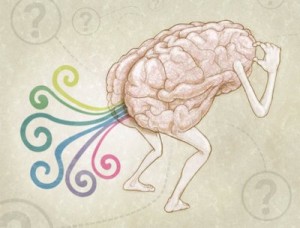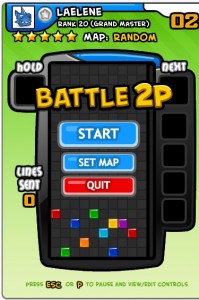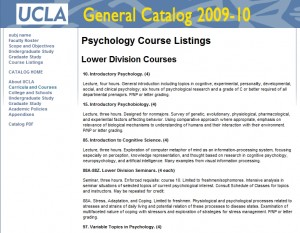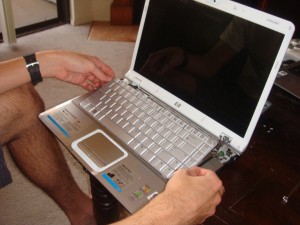 I’ve finally gotten a chance to join the green movement by helping out at Opportunity Green! It’s something that’s been on my mind lately as I tried to figure out what way I wanted to make a difference in this climate crisis of ours. There’s been a lot of talk about the bad shape our environment is in, from the oceans to the air to the land, yet amazingly, the reaction still seems minuscule compared to the problem. I’ve read and listened to countless speeches on how the polar ice caps melting and coral reefs dying off can have dire consequences for us all. I’ve always wanted to do something about it, but there are so many options out there that I don’t really know where to start and I’m tempted to try everything, but I think we all know that’s unrealistic. So, I’ve decided on the divide and conquer strategy by starting somewhere – anywhere.
I’ve finally gotten a chance to join the green movement by helping out at Opportunity Green! It’s something that’s been on my mind lately as I tried to figure out what way I wanted to make a difference in this climate crisis of ours. There’s been a lot of talk about the bad shape our environment is in, from the oceans to the air to the land, yet amazingly, the reaction still seems minuscule compared to the problem. I’ve read and listened to countless speeches on how the polar ice caps melting and coral reefs dying off can have dire consequences for us all. I’ve always wanted to do something about it, but there are so many options out there that I don’t really know where to start and I’m tempted to try everything, but I think we all know that’s unrealistic. So, I’ve decided on the divide and conquer strategy by starting somewhere – anywhere.

A company with a motto of use less.
I think the easiest way to reduce my carbon footprint is to use less. Use less energy, use less water, and buy less in general. I’ve never really cared to eat much meat, so I’ve definitely minimized my footprint by not encouraging the unsustainable ways that Americans produce and consume meat products, particularly beef. Another type of conservation is to turn off all lights that aren’t necessary and turn off and unplug appliances not in use. I’ve been making it a point to unplug my laptop as soon as I notice the battery is fully charged, then re-plugging it only when it hits the 6% mark and starts to shut down on me. I try to use less water for showering and reuse as much from dishwashing as I can (usually to water the plants). Oh, and I never use the dishwasher to wash dishes. I try not to run the AC at all, and minimally if needed.
 A harder thing for me to do right now is buy all-natural, organic, local, or fair trade products. With no income, I’ve got to go for cheapest over other benefits. However, my mom and I have been living an essentially waste-free life for a few months now. We compost all the perishable items that we don’t completely consume. We recycle the plastics, cardboard, aluminum, and glass that we may come across. The other items are the little bit of trash left over that we do have, which doesn’t amount to that much at the end of the day. In fact, my mom has even canceled our trash-collecting service. I’m working on buying less bottles and opted for a powder to mix my own drinks. I reuse plastic bags like crazy and have stopped leaving a grocery stores with a handful of bags in tow. Instead I try to remember my reusable bags, otherwise I “punish” myself by carrying the items separately. I’ve even dragged Panda into that lifestyle and don’t let him be wasteful when we shop for food.
A harder thing for me to do right now is buy all-natural, organic, local, or fair trade products. With no income, I’ve got to go for cheapest over other benefits. However, my mom and I have been living an essentially waste-free life for a few months now. We compost all the perishable items that we don’t completely consume. We recycle the plastics, cardboard, aluminum, and glass that we may come across. The other items are the little bit of trash left over that we do have, which doesn’t amount to that much at the end of the day. In fact, my mom has even canceled our trash-collecting service. I’m working on buying less bottles and opted for a powder to mix my own drinks. I reuse plastic bags like crazy and have stopped leaving a grocery stores with a handful of bags in tow. Instead I try to remember my reusable bags, otherwise I “punish” myself by carrying the items separately. I’ve even dragged Panda into that lifestyle and don’t let him be wasteful when we shop for food.

photo credit: spacetoday.org
I feel guilty every time I have to drive my car, so I’ll feel better when I get a hybrid (which won’t happen until I land a job). It won’t be the best solution, but it’ll be a great improvement, and certainly better than how things are now. I wish electric cars were a more viable option, but they’re not quite practical for me right now. I’m working to make small improvements here and there. I may not be able to suddenly outfit my house with solar panels, drive a pollutant-free car, or buy organic or local, but I can use natural ventilation as much as possible, drive a hybrid, and eat less useless food. I can also use reuse more so I end up using less. I really need to start bringing my own mug/bottle with me when I get drinks outside. With enough time, behavior like this can become second nature and I no longer have to think about it and remind myself to do it.
We all must do something about the climate, but it can be on your own terms. So go ahead, choose one way to change your lifestyle for the better of the environment and start acting now!



 I’ve finally gotten a chance to join the green movement by helping out at
I’ve finally gotten a chance to join the green movement by helping out at 
 A harder thing for me to do right now is buy all-natural, organic, local, or fair trade products. With no income, I’ve got to go for cheapest over other benefits. However, my mom and I have been living an essentially waste-free life for a few months now. We compost all the perishable items that we don’t completely consume. We recycle the plastics, cardboard, aluminum, and glass that we may come across. The other items are the little bit of trash left over that we do have, which doesn’t amount to that much at the end of the day. In fact, my mom has even canceled our trash-collecting service. I’m working on buying less bottles and opted for a powder to mix my own drinks. I reuse plastic bags like crazy and have stopped leaving a grocery stores with a handful of bags in tow. Instead I try to remember my reusable bags, otherwise I “punish” myself by carrying the items separately. I’ve even dragged Panda into that lifestyle and don’t let him be wasteful when we shop for food.
A harder thing for me to do right now is buy all-natural, organic, local, or fair trade products. With no income, I’ve got to go for cheapest over other benefits. However, my mom and I have been living an essentially waste-free life for a few months now. We compost all the perishable items that we don’t completely consume. We recycle the plastics, cardboard, aluminum, and glass that we may come across. The other items are the little bit of trash left over that we do have, which doesn’t amount to that much at the end of the day. In fact, my mom has even canceled our trash-collecting service. I’m working on buying less bottles and opted for a powder to mix my own drinks. I reuse plastic bags like crazy and have stopped leaving a grocery stores with a handful of bags in tow. Instead I try to remember my reusable bags, otherwise I “punish” myself by carrying the items separately. I’ve even dragged Panda into that lifestyle and don’t let him be wasteful when we shop for food.




















